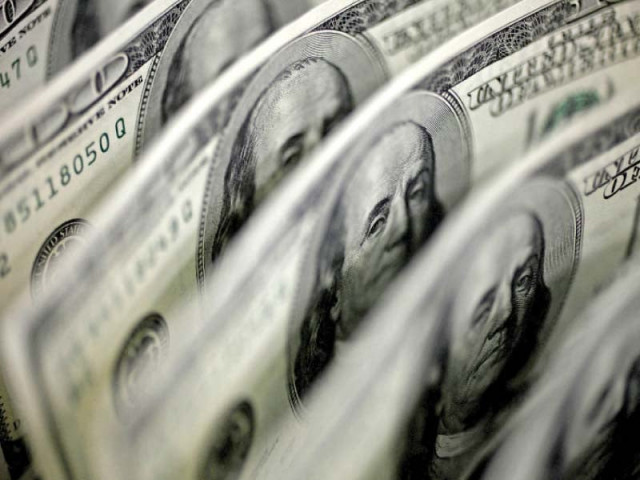SBP downplays risk of default
Says only $4.7b to be repaid in FY23 after debt restructuring, loan rollover

The State Bank of Pakistan (SBP) Governor, Jameel Ahmad has assured the world once again that the country will make all the maturing debt repayments on time, as it is to return only $4.7 billion in actual over the next seven-months.
“To repay the loans, we have arranged foreign exchange reserves, which are more than sufficient for FY23,” he stated.
“As two foreign commercial banks are scheduled to re-lend a total of $1.2 billion in a few days, Pakistan’s foreign exchange reserves will improve back to around $8 billion from the current 4-year low at $6.7 billion,” he noted while speaking at a SBP podcast series aired on Thursday.
“The country’s reserves depleted to a critical level of $6.7 billion following the repayment of two commercial loans (of $700 million and $500 million) totalling a sum of $1.2 billion. They were repaid in addition to the return of $1 billion against a matured Sukuk in the week ended on December 2, 2022,” the governor explained.
“Most of the foreign currency inflows planned for the first half (July-December 2022) of the current fiscal year 2023 will now come in the second half (January-June 2023),” he added.
“The government is working to acquire $3 billion from a friendly country (Saudi Arabia). Other multilateral inflows (loans) are also in the pipeline. As a result, foreign exchange reserves shall further improve over time,” emphasised Ahmad.
“I have no concern over the immediate repayments (scheduled for FY23), as these will be made successfully,” he commented, adding that, “I agree that we need to take more steps in the long-run, including recovering our slowing exports and workers’ remittances.”
The SBP governor dismissed all analysis, rumours and speculation being circulated about the risk of the country defaulting on its foreign payments.
Elaborating on the scheduled repayments, Ahmad said, “Pakistan has to pay off a total of $23 billion in foreign debt in the ongoing fiscal year of 2023; the government and SBP have already repaid $6 billion, while another $4 billion has been rolled out. The government has signed agreements with the concerned parties in this regard. Therefore, $10 billion in foreign loans have already been settled out of $23 billion so far,” he clarified.
“Of the remaining $13 billion in foreign debt, talks are underway with concerned governments to roll over another $8.3 billion. After that, there is only around $4.7 billion to be repaid in actual in the current fiscal year. This includes a $1.1 billion commercial loan and $3.5 billion in multilateral loans,” explained Ahmad.
On the other hand, Pakistan has recorded inflows of $4 billion in the first five months (July-November) of the current fiscal year, of the planned $34-38 billion for the year. A major part of the planned inflows is yet to arrive as most of the inflows planned for the first-half of the year will arrive in the second half.
“The improvement in reserves will encourage global rating agencies to upgrade the country’s credit rating. This will pave the way for floating Eurobonds and Sukuk to raise new debt at affordable prices in the medium-to-long run,” noted the governor.
Ahmad admitted that “Pakistan is facing a number of challenges on external and internal economic fronts. The ongoing Russia-Ukraine war, an increase in global commodity prices (mainly oil and gas prices) and high inflation across the world have made the situation challenging for many countries, including Pakistan.”
Several central banks have hiked their key policy rates to control high inflation readings. The hikes have made return-on-investment (ROI) attractive in developed countries. Accordingly, the capital which was destined to flow to developing countries (including Pakistan) is now flowing to the developed world.
He added that “The central bank’s projection for the current account deficit (CAD) has remained unchanged at 2.5% of GDP (or around $10 billion) in FY23 despite the devastation caused by the floods.”
Meanwhile, foreign currency inflows sent home by overseas Pakistanis via their Roshan Digital Accounts (RDAs) hit a 23-month low at the gross amount of $141 million in November 2022.
With this, gross inflows reached $5.4 billion in the past 27-months.
Pakistan launched RDA-led investment opportunities for overseas Pakistanis in September, 2020. Political instability in Pakistan and the high rate-of-return in developed countries are said to be the two major factors behind the lull seen in RDA inflows.
Published in The Express Tribune, December 9th, 2022.
Like Business on Facebook, follow @TribuneBiz on Twitter to stay informed and join in the conversation.



















COMMENTS
Comments are moderated and generally will be posted if they are on-topic and not abusive.
For more information, please see our Comments FAQ